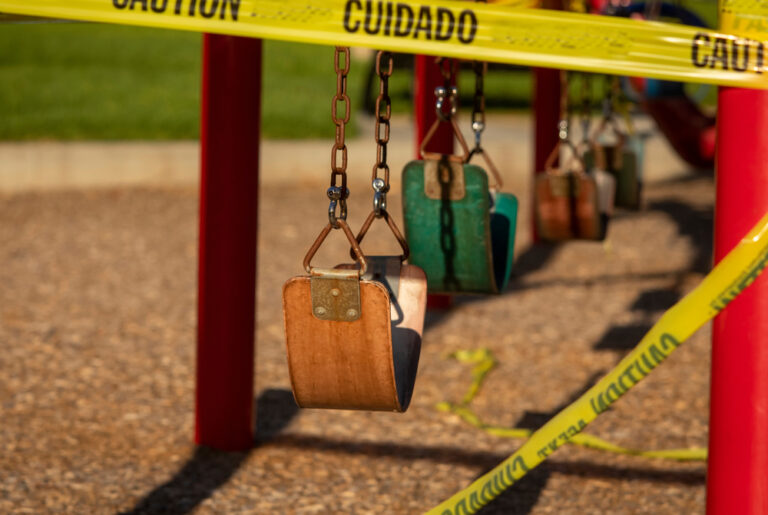Finding yourself or a loved one charged with a crime and behind bars can be a frightening experience. The confusion and stress can be overwhelming, especially when faced with the legalities involved. The distress is further heightened by the sudden demand for a significant sum of money, which is required to prevent the defendant from being incarcerated while awaiting their court date.
Bail bonds can significantly reduce the pressure associated with this procedure. They are used to secure the defendant’s release in the interim period between court dates by covering the bail amount, thereby preserving the finances of friends and family.
Being aware of the bail bond option is crucial in preventing your loved one from unnecessary imprisonment and sparing yourself the burden of paying out of your own pocket.
Understanding Bail
Bail is a financial incentive used by the court system to ensure a defendant’s appearance in court. When someone is arrested and charged with a crime, a judge sets a bail amount. This amount is essentially a deposit that the defendant pays to secure their release from jail before their trial.
If the defendant shows up for all scheduled court appearances, the bail amount is refunded. However, if they fail to appear (skip bail), the court keeps the money and may issue a warrant for their arrest.
The purpose of bail is to ensure the following:
- The defendant’s appearance in court- This allows the legal process to proceed efficiently.
- Maintain public safety- In some cases, keeping dangerous defendants off the streets is a priority.
- Reduce jail overcrowding- Holding everyone accused of a crime until trial would strain jail resources.
The amount of bail varies depending on the severity of the charges, the defendant’s criminal history, and their perceived flight risk (the likelihood they will skip bail).
The Bail Bondsman
This is where a bail bondsman comes into the picture. A bail bondsman, also known as a bail bond agent, is a licensed professional who acts as a surety for the defendant. In simpler terms, they guarantee the court that the defendant will appear for their court dates.
Here’s how it works:
- Contact a Bail Bondsman – After a bail amount is set, the defendant or their family can contact a bail bondsman.
- Fee and Collateral – The bondsman will typically charge a non-refundable fee, usually around 10% of the bail amount. They may also require collateral, such as property, vehicles, or valuables, to secure the bond.
- Post the Bond – Once the fee and any collateral are secured, the bondsman will post the full bail amount with the court. This secures the defendant’s release from jail.
What Can a Bail Bondsman Do for You?
There are many things that a bondsman can do for you, including:
Securing Release from Custody
This is, without a shadow of a doubt, the most important service provided by these specialists. By posting bail on your behalf, the bail bondsman allows you to go back home and continue leading your life until the day of trial.
Help with Paperwork
The bail process is not always straightforward. These professionals, however, have extensive experience with completing the required paperwork and meeting the bail bond agreement requirements.
Providing Financial Assistance
These professionals also provide financial aid to those who can’t afford to pay the full bail amount upfront. Rather than paying the entire amount, you can pay a non-refundable fee, which is usually a portion of the total bail.
Providing Guidance & Support
Dealing with legal issues can be extremely stressful. A bail bondsman also provides the guidance and support you and your loved ones need.
Why Should You Follow Through With Your Court Appearance?
It is paramount to know that using a bail bondsman isn’t a free pass. You are still obliged to show up in court for the scheduled hearings and trial. The bondsman has a vested interest in ensuring this happens, as they are financially responsible if the defendant skips bail.
Here’s what happens if you fail to appear:
- The court will issue a warrant for the defendant’s arrest.
- The bondsman loses the money they paid to the court.
- The bondsman has the legal right to seize any collateral used to secure the bond.
- You may face additional criminal charges for skipping bail.
- In some cases, the bondsman’s license may be at risk if there is a high rate of bail jumpers.
What Are the Implications of Not Posting Bail?
Being unable to post bail can have significant consequences for the defendant. Here are some of the challenges you may face:
Pre-Trial Detention
You stay incarcerated until the trial date, which can take weeks or even months. This can disrupt employment, relationships, and personal well-being.
Defense Preparation
The longer you are detained, the more difficult it can be for your lawyer to prepare a proper defense.
Plea Bargain Pressure
Facing extended pre-trial detention may pressure a defendant to plead guilty, even if they are innocent, just to secure their release.
Seek Experienced and Professional Legal Assistance Today With Your Criminal Court Case
The bail system can be complex and stressful. Understanding the role of a bail bond agent can be a valuable asset during a difficult time. While their services come at a cost, they can provide a lifeline for those who wouldn’t otherwise be able to afford bail.
A criminal defense lawyer can give you advice depending on your circumstances, collect the necessary information required for the hearings, and make arrangements if you cannot afford the bond. Call the SHElaw firm® today at 470-788-8930 to get started.









